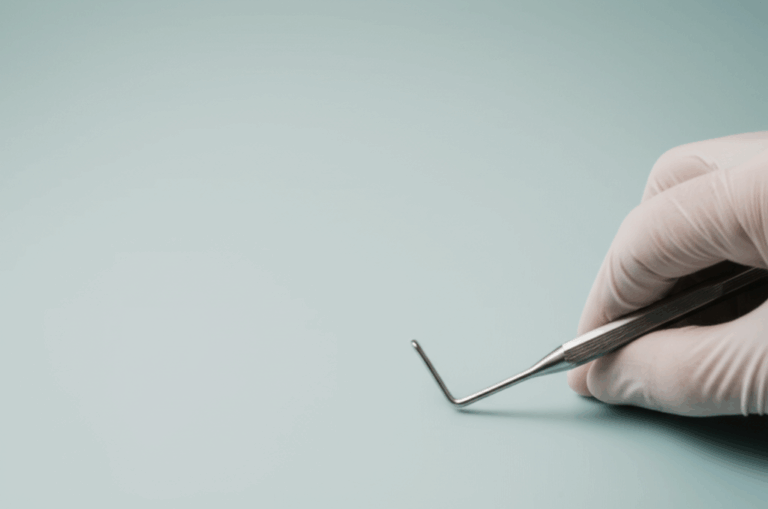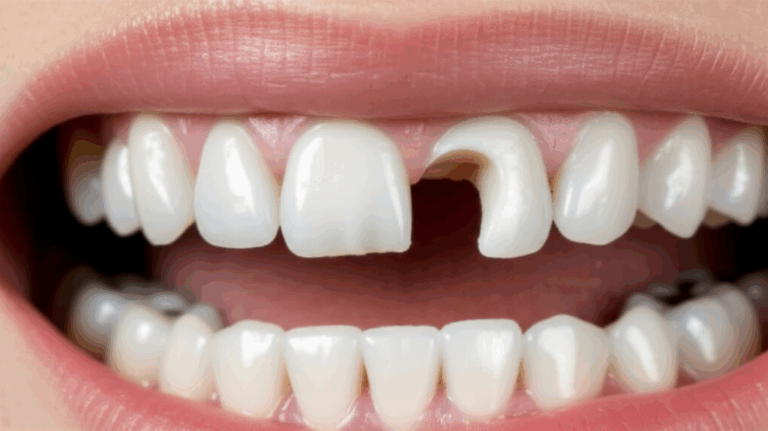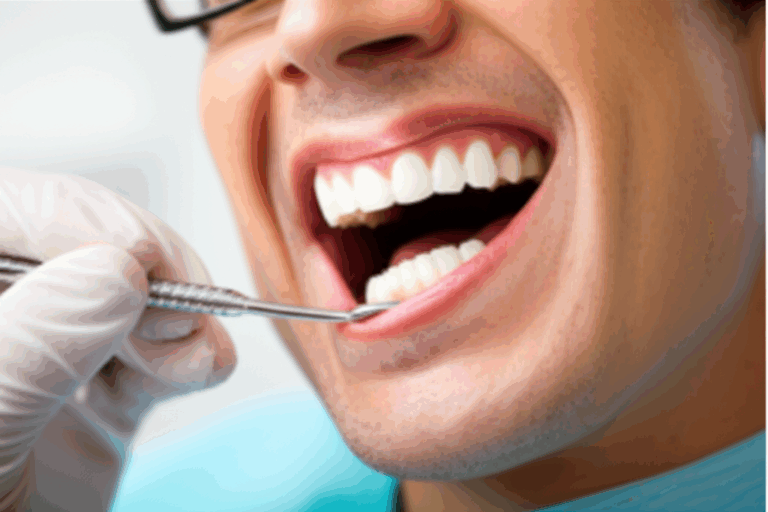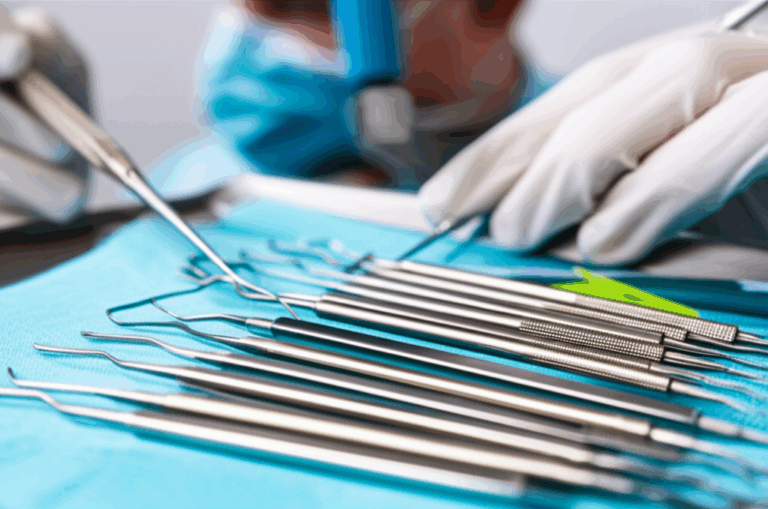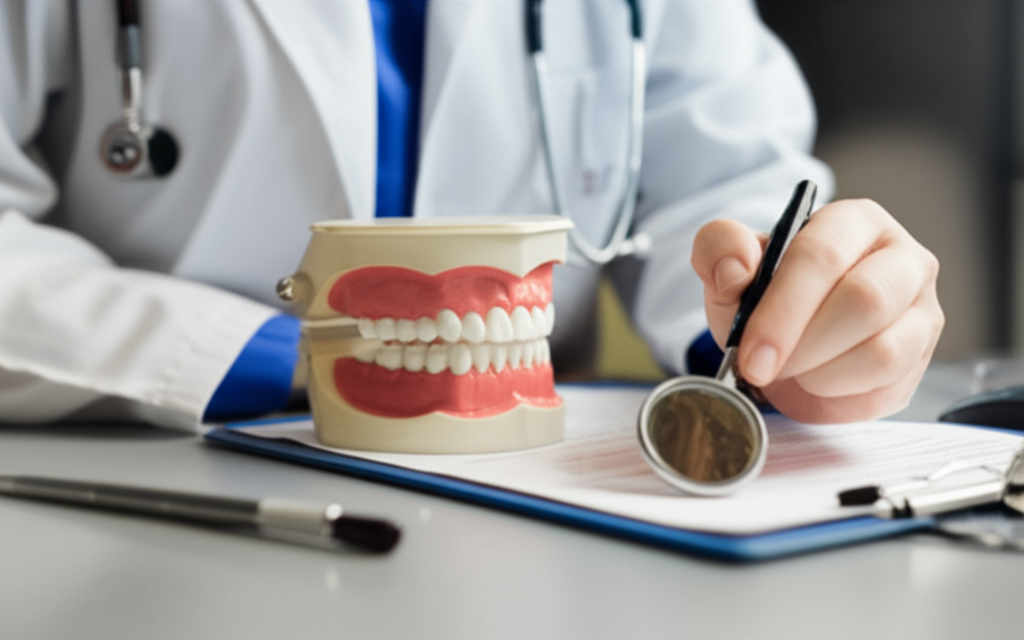
DMD for a Dentist: What Does It Really Mean? (A Friendly Explainer)
Ever notice the letters “DMD” after your dentist’s name and wondered, “What does that stand for?” Or maybe you’ve seen “DDS” and thought if one is better than the other. You’re not the only one! These letters can feel confusing, but here’s some good news: whether your dentist is a DMD or DDS, both have worked hard for years to learn how to take care of your teeth.
It’s easy to see why people get mixed up. With all the degrees and job titles out there, you might want to know exactly who’s treating your teeth—and what those letters mean. So, let’s clear things up about what DMD means, why it matters, and if it changes anything about your dental care.
In This Article
- What Does “DMD” Stand For? (And Why Do Dentists Use It?)
- DMD vs. DDS: What’s the Real Difference?
- Your Path to Becoming a DMD: The Dental Education Journey
- What DMDs Actually Do: Their Roles in Dentistry
- Accreditation, Licensing, and Professional Standards: How Quality Is Ensured
- The Big Takeaways: What Should Matter to You?
- More Questions? A Quick FAQ About DMD vs. DDS
What Does “DMD” Stand For? (And Why Do Dentists Use It?)
Let’s start with the basics: When you see “DMD” after someone’s name, it means Doctor of Dental Medicine. This is a big degree that dentists get after four years of dental school, plus a college degree before that.
But here’s what really matters: DMDs are real, licensed dentists who have done a lot of hard schoolwork, training, and practice.
So why do some dentists use DMD, while others use DDS? It’s mostly because of school tradition and history. “DMD” and “DDS” (Doctor of Dental Surgery) mean the same thing: this person knows a lot about keeping your mouth healthy.
Is a DMD a Doctor?
Yes! A DMD learns and practices the same amount as a DDS. Both can do all sorts of treatments, as long as they’re trained for them.
In short: DMDs are doctors who focus on your mouth and everything in it.
DMD vs. DDS: What’s the Real Difference?
Let’s make this clear. The only real difference between DMD and DDS is the letters. Both mean a dentist is fully trained and can do general dental work. One is not better than the other.
Why Are There Two Degrees?
Here’s why: back in 1867, Harvard wanted to call their dental graduates “Doctors of Dental Medicine” (DMD) because their program was close to medical school. Other schools stuck with “Doctor of Dental Surgery” (DDS).
Different letters, same training.
It’s like saying “attorney” or “lawyer.” Both can help you in court. Both finished law school and passed the bar. It just sounds different, but the job is the same.
Does One Degree Have More Prestige?
Nope. The American Dental Association, the Commission on Dental Accreditation, and all the big rule-makers see both degrees as the same. It’s just two ways of saying “dentist.” You won’t find a difference in skill, training, or chances at jobs.
Summary Table: DMD vs. DDS at a Glance
| Feature | DMD (Doctor of Dental Medicine) | DDS (Doctor of Dental Surgery) |
|---|---|---|
| Introduced By | Harvard University, 1867 | Baltimore College of Dental Surgery, 1840 |
| Program Length | 4 years (after college) | 4 years (after college) |
| Accreditation | CODA (ADA) | CODA (ADA) |
| Practice Rights | Fully licensed | Fully licensed |
| Status in Job Market | Equal chance | Equal chance |
| Curriculum | Almost the same | Almost the same |
Your Path to Becoming a DMD: The Dental Education Journey
Ever wonder what it takes to get those three letters—DMD—after your name? Becoming a dentist is tough, and the way there helps someone become a pro who can help you keep your smile healthy.
Pre-Dental Requirements
First step: before dental school, students need a college degree, usually including lots of science classes like biology and chemistry. They also have to pass the Dental Admissions Test (DAT), a hard test to see if they’re ready.
Four Years of Dental School
Think of dental school as a bag full of everything a dentist needs to know. In four years, students learn from books and also get hands-on practice. Here’s how it goes:
Year 1 & 2: The Science Basics
- Anatomy, especially the head and neck
- Biochemistry and body science
- Microbiology (learning about germs that cause dental problems)
- Learning about oral biology and diseases
Year 3 & 4: Patient Care and Real Practice
- Fixing teeth (fillings, crowns, bridges)
- Gum health
- Root canals
- Making dentures and false teeth
- Kids’ dentistry
- Moving teeth with braces
- Simple oral surgeries
Students work with real patients and are watched by teachers from day one.
Ethics, Public Health, and More
Besides teeth, dental students learn about how to keep patient info private, how to run a dental office, and how to keep up with new tech—like digital impressions and fast crowns.
After Graduation
Grads have to pass big national and state tests before they can call themselves Doctor of Dental Medicine or DDS. They also keep learning all the time to stay on top of new things in dentistry.
If you’re curious about new tech in dental care, check out the cool world of a digital dental lab. Digital impressions, better crowns, and modern tools are popping up fast!
What DMDs Actually Do: Their Roles in Dentistry
Getting a DMD isn’t the end of learning. It’s the start of a job where dentists can do a lot of different things—all about your mouth health.
The Day-to-Day: General Dentistry
Most DMDs become general dentists. Here’s what that means for you—they help with:
- Check-ups and basic cleanings
- Taking care of cavities and putting in sealants
- Fixing broken teeth, making crowns and bridges
- Simple tooth removals
- Helping when you have dental emergencies
- Teaching how to keep gums healthy
- Answering your questions about oral care
In simple words, general dentists do everything needed to keep your teeth in shape.
Specialization and More Training
Some DMDs go further with extra training. Your dentist could be a:
- Orthodontist: Straightens teeth with braces or aligners
- Oral surgeon: Does tough tooth removals or surgeries
- Periodontist: Works on serious gum problems
- Pediatric dentist: Cares just for children
- Prosthodontist: Makes dentures and big fixes for your mouth
These specialists train for a few more years and take even more exams.
Research, Teaching, and Leadership
Some DMDs become teachers at dental schools, do research on new dental tools or materials, or help make dental rules and policies.
A Snapshot: What Does This Mean for Patients?
No matter what they do, DMDs stay up to date with new dental ideas and care, so you can get good, modern dental help.
Accreditation, Licensing, and Professional Standards: How Quality Is Ensured
You might wonder: With so many dental schools, how do you know your dentist is well trained?
The Role of the Commission on Dental Accreditation (CODA)
It’s all about rules. Every DMD (and DDS) school must follow very strict rules from the Commission on Dental Accreditation (CODA). CODA checks every school often to make sure students learn what they need and will be ready for real-world work.
Licensing Exams: The Final Hurdle
Before treating you, a DMD must pass national tests (like the National Board Dental Exam) and a hands-on test in their state. Only those who pass can become real dentists.
Staying Current: Continuing Education
Dentistry changes fast. There’s always something new to learn. Every state makes dentists keep studying by going to classes or events—sometimes with help from a china dental lab.
The Bottom Line: Tough school, strict checks, and always learning—these things help keep your dental care safe and up-to-date.
The Big Takeaways: What Should Matter to You?
If you skipped here, here’s what you really need to know:
- DMD and DDS are both trusted dental degrees.
- Both mean someone finished tough schooling and all the tests.
- Neither one is better. Only the letters are different.
- A dentist’s great care comes from years of study, practice, and learning.
- Find a dentist you feel good about—not because of their degree title, but because of their care.
When you’re in the dental chair, those three letters are just the start. What matters most is how you feel, how your dentist listens, and the difference they make to your health.
More Questions? A Quick FAQ About DMD vs. DDS
Can DMDs and DDSs do all the same treatments?
Yes! Both can do general and even special treatments—from check-ups to putting crowns in with help from a crown and bridge lab.
Which schools give DMD or DDS degrees?
About half of U.S. dental schools give DMDs, and half give DDS degrees. Harvard, Tufts, and Penn give DMD. NYU, Michigan, and USC give DDS. Both are just as hard and serious.
Can a DMD become a specialist?
You bet. After dental school, DMDs can learn more to become orthodontists, surgeons, or others. You get in based on grades and interviews, not your degree letters.
Does my insurance treat DMD and DDS the same?
Yes. Insurance companies see both degrees the same. No difference in coverage or payment.
Making Good Dental Choices: How to Feel Empowered
There’s a lot to read, and it can be confusing. But remember—the letters after your dentist’s name are less important than if they’re kind, skilled, and listen to you.
How you can make your next dental visit better:
- Bring questions to ask.
- Ask how your dentist keeps up with new ideas.
- Talk about your dental goals—like whitening, braces, or implants. Maybe ask about strong tooth materials from a zirconia lab.
- Notice if the dental team explains things clearly. Good communication means good care.
- If you’re unsure, get a second opinion—you deserve answers.
And remember: Seeing your dentist regularly is the best way to have healthy teeth, no matter if they’re a DMD or DDS.
Your DMD Degree Recap: The Takeaway List
- DMD stands for Doctor of Dental Medicine—same as DDS.
- Both mean your dentist passed all the right schooling and tests.
- There’s no difference in how they train or what they can do.
- DMDs are excited about oral health and keep learning all their lives.
- Pick a dentist for how well they care for you, not the letters after their name.
Ready to start taking great care of your teeth?
Find a dentist who listens, explains things well, and helps you reach your smile goals. If you want to know about new dental tech or stronger materials, just ask your dentist how they keep learning new things. The answer might surprise you!
Share this guide with friends or bring it up at your next dental visit. Knowing more is the first step to looking after your own teeth—and keeping your smile healthy for years.

